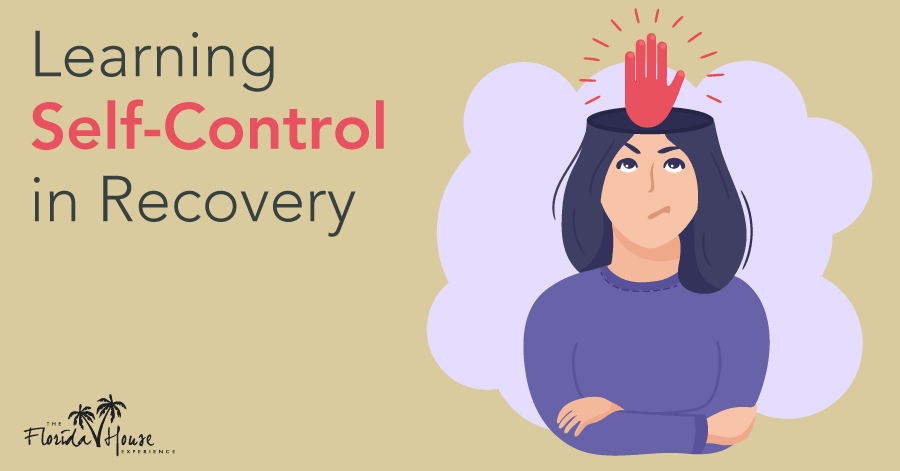
When trying to break an addiction to a substance, it very often involves having to experience strong cravings and withdrawal. In order to get through the short-term effects of withdrawal and to maintain long-term recovery, practicing self-control helps. This isn’t to say that addiction or relapse is a moral failing of the individual. Addiction is an insidious disease that is very difficult to overcome, but understanding self-control is one more tool available to you in standing tall over your addiction. Thankfully, there are a number of ways to hone those skills so the process is a little bit easier to go through and make it out.
What Is Self-Control?
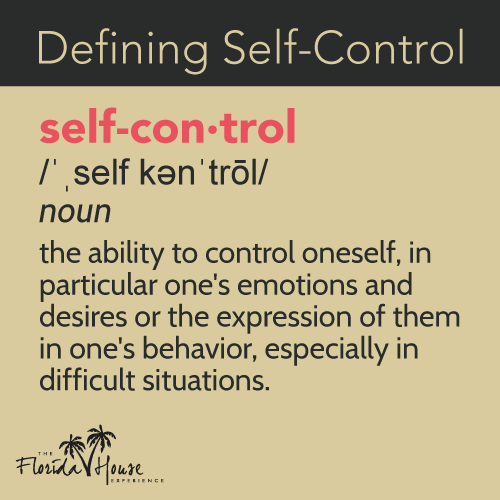 Self-control is the ability to hold back or restrain one’s actions and feelings, especially if they lead to engaging in negative behavior. It is a muscle that you strengthen, develop, and acquire by controlling such behaviors repeatedly over a period of time. It is a skill that demands practice, and you must take time to learn. Consider that you might have spent years training yourself to react to stressful situations by indulging in drug abuse. It is no wonder that it is difficult to train yourself to do the opposite as soon as you get clean.
Self-control is the ability to hold back or restrain one’s actions and feelings, especially if they lead to engaging in negative behavior. It is a muscle that you strengthen, develop, and acquire by controlling such behaviors repeatedly over a period of time. It is a skill that demands practice, and you must take time to learn. Consider that you might have spent years training yourself to react to stressful situations by indulging in drug abuse. It is no wonder that it is difficult to train yourself to do the opposite as soon as you get clean.
Often times you may hear someone say that they have no control over their addiction, whether it is drug use or drinking alcohol. The disease of addiction can change the ‘wiring’ of our brains, our thought processes, but they can be re-trained through dedication and expert help. Part of this is understanding the true issues that are ongoing. Addiction does not define you or anyone else, learning about the disease and your thought processes about it are the first step in knowing your limits. You will not begin as an expert and there will be roadblocks, but it is not impossible, just like addiction recovery is not impossible.
At the start, you will have to unlearn a lot of attitudes and behaviors you adopted because of the addiction. This may be uncomfortable at first and could require forcing yourself, but sobriety is worth the struggle.
The Possibility of Relapse
Addiction recovery varies from individual to individual. It is a highly personal experience that addicts respond to uniquely. Few are able to stop substance use after a short detox, many require a lifestyle change and long-term commitment to, not just a residential program, but long-term aftercare. Treatment is shaped greatly by the substance that was abused, how long it was used for, and the impact it had on the mental and physical health of the person. More extreme and sustained substance abuse will require a greater amount of self-control as the habit will be more difficult to quit. No matter how carefully constructed a treatment program is, there is always the chance for relapse to occur.
Relapsing does not mean you have no self-control or that you are unable to keep your addiction in check. Recovering addicts, especially those in early recovery are vulnerable. They face extended withdrawal periods where their bodies ache for a high. Facing this can be very painful and may involve intense cravings. It can make a person start to feel weak or depressed, so they may begin reusing. Relapse is normal, common, and happens frequently during the rehabilitation journey. However, it is never a sign to give up hope or to stop treatment, but rather a temporary setback in the noble pursuit of sobriety.
No matter how many times relapse occurs, one must always return to treatment as soon as possible to learn more copy strategies and how to strengthen the willpower to function without the use of substances. Better yet, when you feel in danger of relapsing, seek help from your community or a treatment center you trust. Whenever a relapse occurs, you must own up to it. Know that there is no need to punish yourself or feel guilty. Also, understand that the right amount of self-determination can stop another relapse from occurring.
Control in Addiction Recovery
Self-control in addiction recovery is a discipline that can be implemented in a multitude of ways. Mastering this craft is really the only way to ensure long-term success with rehabilitation because there will always be the temptation that can come into your life at any time. Having a good command will allow you to break bad habits, alter previously learned behaviors, and change daily routines. The following are some techniques to improve your self-control over time:
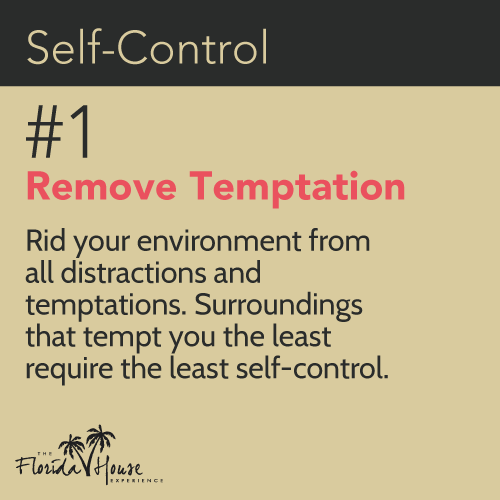 Remove temptations: Ridding your environment of all distractions and temptations is a great way to develop self-control and prevent relapse. In the way that you get rid of junk food when on a diet, do not have any substances around you or people that abuse substances who can trigger your addiction. Get rid of all the bad influences in your life so you can have peace of mind. One way to go about finding a neutral place for addiction recovery is to attend a medical detox program such as the ones offered by FHE Health. These are medically assisted programs that grant patients access to therapists, nurses, and doctors for twenty-four-hour care. Detoxing literally is the process of ridding the body of harmful chemicals, and once this has been done, self-control is far easier to maintain. Detox programs usually last for around a week and are meant for people new into their treatment, which typically makes them more susceptible to outside stimuli. Detox centers provide you with a neutral environment to go through the worst of withdrawal and to deal with cravings. They usually provide an array of amenities to help distract you from the substance of issue. The step-down from these programs is a residential treatment program which will further teach you about the disease of addiction and prepare you for long-term recovery.
Remove temptations: Ridding your environment of all distractions and temptations is a great way to develop self-control and prevent relapse. In the way that you get rid of junk food when on a diet, do not have any substances around you or people that abuse substances who can trigger your addiction. Get rid of all the bad influences in your life so you can have peace of mind. One way to go about finding a neutral place for addiction recovery is to attend a medical detox program such as the ones offered by FHE Health. These are medically assisted programs that grant patients access to therapists, nurses, and doctors for twenty-four-hour care. Detoxing literally is the process of ridding the body of harmful chemicals, and once this has been done, self-control is far easier to maintain. Detox programs usually last for around a week and are meant for people new into their treatment, which typically makes them more susceptible to outside stimuli. Detox centers provide you with a neutral environment to go through the worst of withdrawal and to deal with cravings. They usually provide an array of amenities to help distract you from the substance of issue. The step-down from these programs is a residential treatment program which will further teach you about the disease of addiction and prepare you for long-term recovery.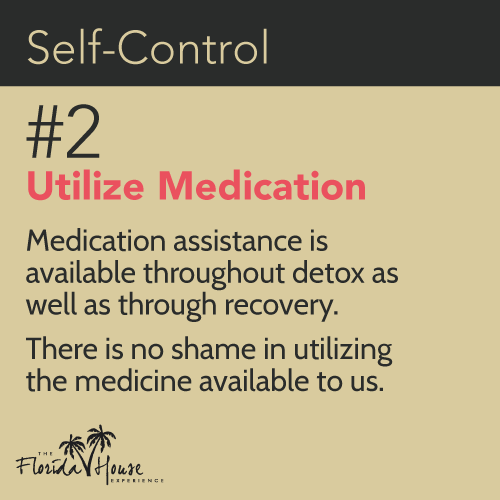 Utilize medication: The more severe withdrawal is, the risk for relapse is greater as the user is desperately seeking relief. There are medications available that drastically reduces cravings and facilitate the process for you. There is no reason to feel ashamed for needing medication to prevent relapse, especially since they are being found to be effective at treating addiction. Having dulled cravings and easier withdrawal makes self-control seem more within reach. Medication is often used in the detox process and is sometimes utilized months after in what is called Medication Assisted Treatment (MAT).
Utilize medication: The more severe withdrawal is, the risk for relapse is greater as the user is desperately seeking relief. There are medications available that drastically reduces cravings and facilitate the process for you. There is no reason to feel ashamed for needing medication to prevent relapse, especially since they are being found to be effective at treating addiction. Having dulled cravings and easier withdrawal makes self-control seem more within reach. Medication is often used in the detox process and is sometimes utilized months after in what is called Medication Assisted Treatment (MAT).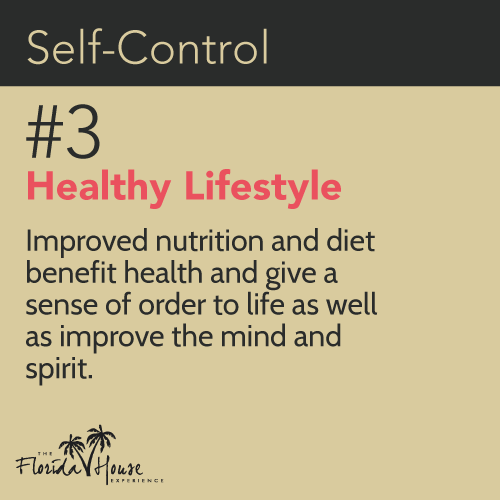 Healthy lifestyle: Quitting an addiction is not the only aspect of becoming sober. You need to begin living a life that is conducive to healthy living. Nutrition and diet are a way of doing this since particular foods and drinks trigger strong, positive memories that often overpower people. They can take your mind off of substances. A regimented diet can give a sense of order and self-control that drugs strip away. Foods particularly high in vitamins and proteins improve mental functioning, allowing the brain to work without drugs and alcohol, and reduce drug cravings. Hydration is also key to a healthy lifestyle since addicts frequently mistake thirst for drug cravings. Water is essential to detoxing the body as it flushes harmful toxins out through perspiration, bowel movements, and urination. Low blood sugar often weakens a person’s resolve. When you are hungry, your ability to concentrate suffers as your brain is not functioning to its highest potential. Hunger makes it difficult to focus on the tasks at hand, not to mention making you grumpy and pessimistic. You are much more likely to have a weakened sense of self-control in all facets of our lives. Exercise and sleep are two other ways to give you a sense of control. Exercise triggers the release of endorphins that produce a high that wards off substance cravings. Physical activity can help to give you the body that you want, the very same body that may have been altered by addiction.
Healthy lifestyle: Quitting an addiction is not the only aspect of becoming sober. You need to begin living a life that is conducive to healthy living. Nutrition and diet are a way of doing this since particular foods and drinks trigger strong, positive memories that often overpower people. They can take your mind off of substances. A regimented diet can give a sense of order and self-control that drugs strip away. Foods particularly high in vitamins and proteins improve mental functioning, allowing the brain to work without drugs and alcohol, and reduce drug cravings. Hydration is also key to a healthy lifestyle since addicts frequently mistake thirst for drug cravings. Water is essential to detoxing the body as it flushes harmful toxins out through perspiration, bowel movements, and urination. Low blood sugar often weakens a person’s resolve. When you are hungry, your ability to concentrate suffers as your brain is not functioning to its highest potential. Hunger makes it difficult to focus on the tasks at hand, not to mention making you grumpy and pessimistic. You are much more likely to have a weakened sense of self-control in all facets of our lives. Exercise and sleep are two other ways to give you a sense of control. Exercise triggers the release of endorphins that produce a high that wards off substance cravings. Physical activity can help to give you the body that you want, the very same body that may have been altered by addiction.
Contact Florida House
Learning self-control is by no means a simple task. However, by making the decision to seek treatment, you have clearly made one of the most difficult choices and are entirely capable of exercising the restraint needed to get sober. Because the path to this is rocky, know that you will fail and not everything will go as planned. Make sure you forgive yourself and move on when these challenges arise. Always make forward progress despite the setbacks that come.
If you or someone you know wants to find out more about self-control to deal with cravings and withdrawal during addiction recovery, please contact Florida House at 833-596-3502 for help.






